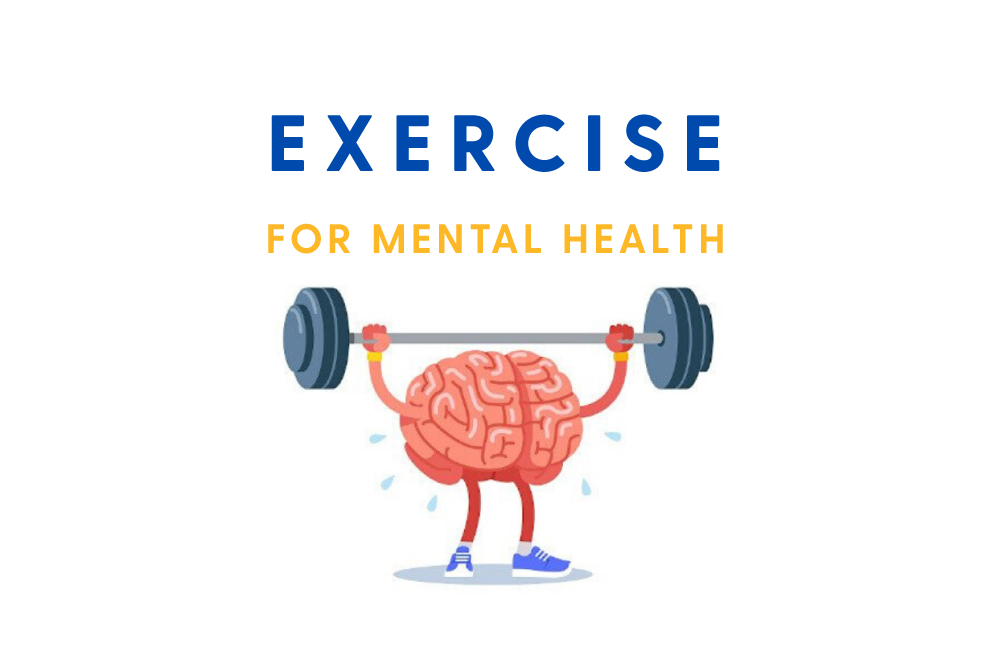
Exercise and Mental Health
 Studies suggest that 1 in 5 Australians experience a mental health disorder and given the potential impact of COVID-19, exercising for your mental health has never been more important.
Studies suggest that 1 in 5 Australians experience a mental health disorder and given the potential impact of COVID-19, exercising for your mental health has never been more important.
Some of the most common mental health disorders include depression, anxiety and substance use disorder. Stress or anxiety-related reactions to the current pandemic may include worry, changes in eating/sleeping habits, physical symptoms, substance use or changes in concentration. With social distancing restrictions also in place, and restrictions around where and how far we can go, it is easy to fall into the trap of watching hours and hours of Netflix or playing video games. However, sedentary behaviour is associated with an increased risk of depression and excessive amounts of screen time has been linked with poorer mental health.
One of the recommended coping strategies during this time, and for mental health in general, is engaging in positive lifestyle behaviours such as physical activity. Exercise can help improve mood, self-esteem and cognitive function. There is also strong evidence that physical activity can reduce symptoms of anxiety in individuals with anxiety disorders as well as reducing depressive symptoms in people with or without major depressive disorders.
So what exercise is best?
Exercising for enjoyment is crucial when it comes to mental health. If you like to walk, walk. If you like to run, run. If you like to lift weights, lift weights! Moderate intensity exercise is better than a lighter intensity session but if you are new to exercise, start out slow (even 10 minutes is of benefit!) and gradually build up to 30-40 minutes aerobic exercise. Some exercise is better than none to improve mental health. If you are not sure where to start, talking to an Accredited Exercise Physiologist can help.
By Jess Post – Allsports Helensvale
References
Australian Bureau of Statistics. (2009). National Survey of Mental Health and Wellbeing: Summary of Results, 4326.0, 2007. ABS: Canberra
Zhai L, Zhang Y, Zhang D (2015) Sedentary behaviour and the risk of depression: a meta-analysis
British Journal of Sports Medicine 2015; 49:705-709.
Bailey, A., Hetrick, S., Rosenbaum, S., Purcell, R., & Parker, A. (2018). Treating depression with physical activity in adolescents and young adults: A systematic review and meta-analysis of randomised controlled trials. Psychological Medicine, 48(7), 1068-1083. doi:10.1017/S0033291717002653
Brown, HE, Pearson, N, Braithwaite, RE, Brown, WJ and Biddle, Stuart (2013) Physical activity interventions and depression in children and adolescents: a systematic review and meta-analysis. Sports Medicine, 43 (3). 195 – 206. ISSN 1179-2035
